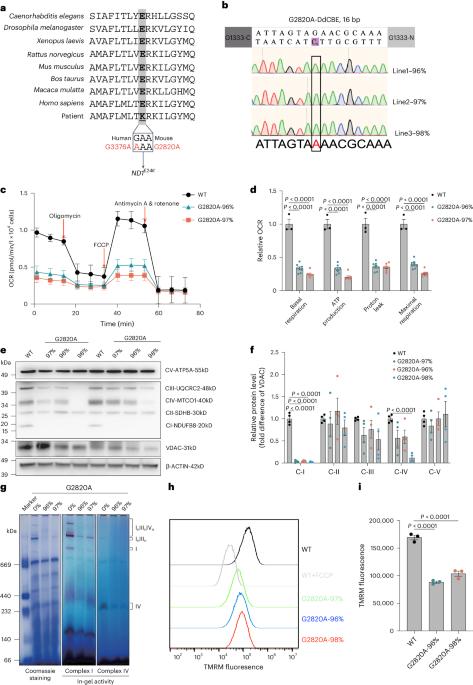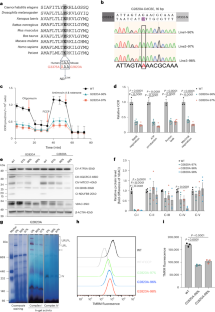Maternal age enhances purifying selection on pathogenic mutations in complex I genes of mammalian mtDNA
IF 17
Q1 CELL BIOLOGY
引用次数: 0
Abstract
Mitochondrial diseases, caused mainly by pathogenic mitochondrial DNA (mtDNA) mutations, pose major challenges due to the lack of effective treatments. Investigating the patterns of maternal transmission of mitochondrial diseases could pave the way for preventive approaches. In this study, we used DddA-derived cytosine base editors (DdCBEs) to generate two mouse models, each haboring a single pathogenic mutation in complex I genes (ND1 and ND5), replicating those found in human patients. Our findings revealed that both mutations are under strong purifying selection during maternal transmission and occur predominantly during postnatal oocyte maturation, with increased protein synthesis playing a vital role. Interestingly, we discovered that maternal age intensifies the purifying selection, suggesting that older maternal age may offer a protective effect against the transmission of deleterious mtDNA mutations, contradicting the conventional notion that maternal age correlates with increased transmitted mtDNA mutations. As collecting comprehensive clinical data is needed to understand the relationship between maternal age and transmission patterns in humans, our findings may have profound implications for reproductive counseling of mitochondrial diseases, especially those involving complex I gene mutations. Mitochondrial DNA mutations are subject to purifying selection in the female germline, limiting the transmission of pathogenic variants. In this study, the authors used two mouse models that harbor pathogenic mutations in mitochondrial complex I and observed that maternal age intensifies purifying selection processes.


母体年龄增强了对哺乳动物mtDNA I复合基因致病突变的纯化选择。
线粒体疾病主要由致病性线粒体 DNA(mtDNA)突变引起,由于缺乏有效的治疗方法,线粒体疾病构成了重大挑战。研究线粒体疾病的母体传播模式可以为预防方法铺平道路。在这项研究中,我们利用 DddA 衍生的胞嘧啶碱基编辑器(DdCBE)生成了两个小鼠模型,每个模型都有一个复合 I 基因(ND1 和 ND5)的致病突变,与人类患者中发现的突变相同。我们的研究结果表明,这两种突变在母体传播过程中都受到了强烈的净化选择,并且主要发生在出生后卵母细胞成熟过程中,蛋白质合成的增加起到了至关重要的作用。有趣的是,我们发现母体年龄会加强纯化选择,这表明母体年龄越大,对有害 mtDNA 突变的传播越有保护作用,这与母体年龄与传播的 mtDNA 突变增加有关的传统观点相矛盾。由于需要收集全面的临床数据来了解人类母体年龄与传播模式之间的关系,我们的发现可能会对线粒体疾病(尤其是涉及复合 I 基因突变的疾病)的生殖咨询产生深远影响。
本文章由计算机程序翻译,如有差异,请以英文原文为准。
求助全文
约1分钟内获得全文
求助全文

 求助内容:
求助内容: 应助结果提醒方式:
应助结果提醒方式:


